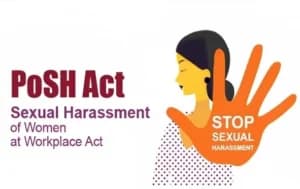The Allahabad High Court has offered relief to three individuals accused under the Dowry Prohibition Act and the Uttar Pradesh Prohibition of Unlawful Conversion of Religion Act, observing that gifts exchanged during marriage ceremonies are generally not classified as dowry.
The court noted that the criminal proceedings appeared to potentially stem from an afterthought and emphasized the need for a detailed examination. Justice Vikram D. Chauhan, presiding over the matter, has directed the State and the complainant to file their counter-affidavits.
The case revolves around a tragic incident involving a Hindu woman and her Muslim partner, Faraz Ather. The two, reportedly in a relationship, intended to marry and had submitted affidavits to the Delhi Marriage Registrar on December 6, 2024. The woman had clearly affirmed her decision to marry Faraz without religious conversion.
Unfortunately, just days later, on December 12, the woman died by suicide. Following this, her father filed an FIR naming Faraz and his family members—including his brother (Applicant No. 1), sister (Applicant No. 2), and mother (Applicant No. 3)—alleging dowry demands and pressure to convert to Islam.
The applicants approached the High Court, arguing that their only involvement was attending a pre-marriage event. They highlighted that the FIR did not attribute any direct action or role to them.
The petitioners further clarified that the main accusations regarding dowry and religious pressure were specifically against Faraz, not them. They referenced a missing person complaint that Faraz had filed with Delhi Police when he lost contact with the deceased. They also pointed to the deceased’s father's request for a post-mortem, which acknowledged it was a case of suicide.
Read also:- Repeated Absence by Advocates in Court is Professional Misconduct, Says Allahabad High Court
Critically, the applicants emphasized that no dowry was received by them—even according to the prosecution’s own claims. They argued that the woman ended her life allegedly due to pressure from her own mother and sister to withdraw from the marriage.
In response, the counsel for the complainant opposed the plea, citing statements by the deceased’s mother and sister. These statements, recorded on December 28, 2024—seventeen days after the death—mentioned forced conversion and dowry allegations.
However, the court noted that no clear evidence of dowry payment was presented. The opposing party claimed the money given during the "Roka" ceremony was dowry, but could not substantiate it beyond general allegations.
Read also:- Allahabad High Court Slams Police Intimidation of Lawyers, Orders Strict Action in PIL Harassment Case
"The gifts given in the marriage normally are not taken as dowry," the Court observed, emphasizing that the timing of the allegations was questionable.
"The statements of the sister and the mother of the deceased were recorded on 28.12.2024 although the deceased had died on 11.12.2024. It has not been shown as to why the aforesaid allegations were not informed to the father of the deceased, who is the informant and why the statements have been raised at the first instance with police authorities on 28.12.2024," the bench stated.
Considering these factors, the court held that the matter requires deeper scrutiny. It stayed proceedings against the three applicants until the next hearing. However, it clarified that proceedings against Faraz, the primary accused, may continue as per law.















